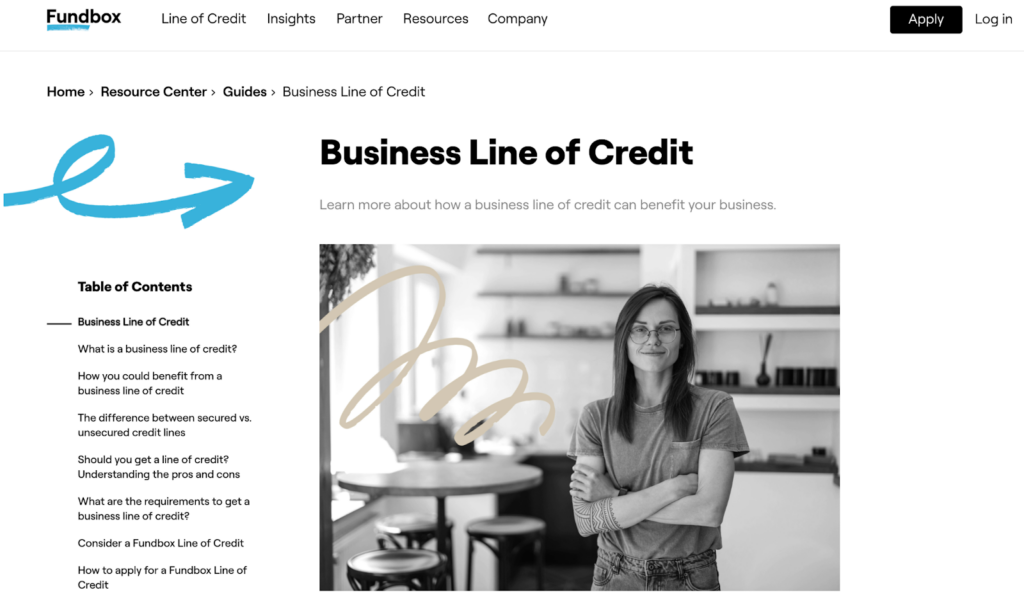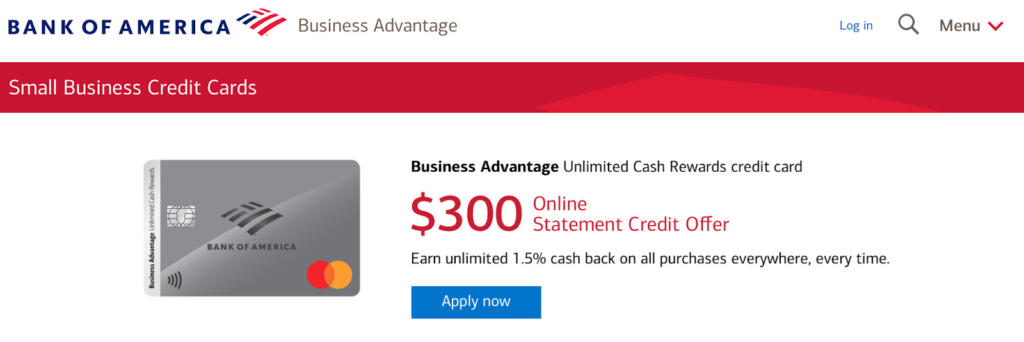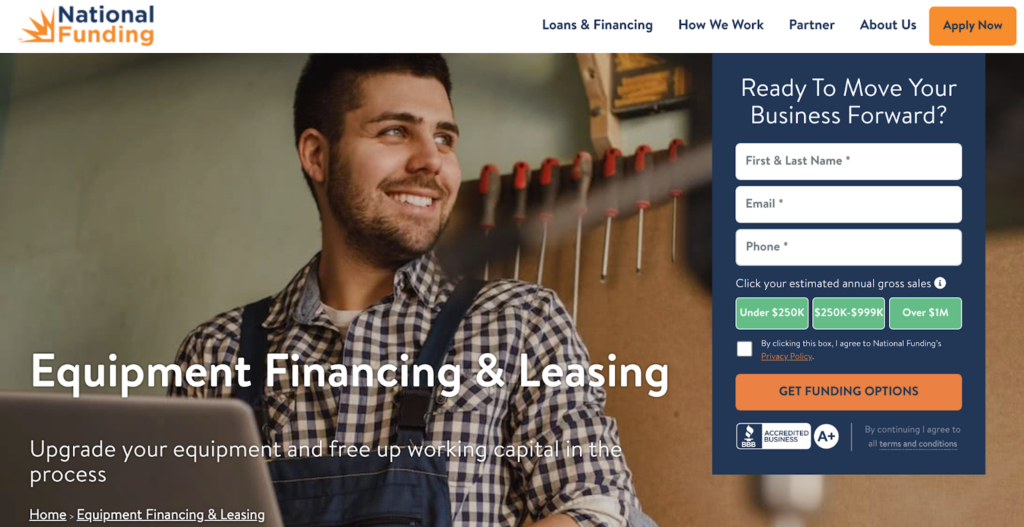According to CB Insights, the number one reason why startups fail is being unable to secure funding. At Founderpath, our goal is to help startups secure the funding they need to get off the ground and succeed.
If you’re a startup business owner looking for funding, you’ve come to the right place.
Several unsecured funding options make it possible to get financing without a robust credit history or assets to offer as collateral.
These options don’t require you to sell equity or spend thousands on lawyers to negotiate a deal. Since many startup owners aren’t aware these options exist, this article will explain what they are, how they work, and what businesses they suit.
Lenders employ risk mitigation for all loans
Secured business loans present a low risk to lenders by guaranteeing repayment in the form of collateral. If the borrower cannot repay the loan, the lender takes possession of the collateral. Most often, lenders take as collateral whatever the borrower purchased with the loan – real estate, vehicles, equipment, etc.
On the other hand, unsecured loans have no collateral. This lack of a guarantee makes it riskier for lenders, so they consider an array of factors when deciding whether a prospective borrower is creditworthy. These factors include personal credit and the financial history and stability of the business. In addition, institutions often add specific clauses to unsecured loans to mitigate their risk.
Personal guarantees leave you exposed
Unsecured lenders often require borrowers to sign a personal guarantee if they have no assets for collateral. This clause promises to pay back the loan out of pocket if the business cannot. A personal guarantee exposes the borrower to financial loss but often works very well for people with a strong credit rating.
Blanket UCC liens risk all your company assets
Uniform Commercial Code (UCC) liens are legal statements indicating which assets a lender accepts as collateral. Their main purpose is to prevent businesses from using an asset to secure funding from multiple sources. Essentially, they are the formal list of collateral for a secured loan.
However, unsecured lenders may require a blanket UCC lien that extends to all your company’s assets. This document exposes everything to seizure equally in the event of a default.
In most circumstances, “unsecured” is a misnomer
You may have noticed that so-called unsecured loans are still secured by something – either your own personal assets or the sum total of your business assets. This is true.
Lenders need some guarantee that they will get their money back, so the idea of an unsecured loan is illusory in most cases. The main distinction is that unsecured business loans do not hold specific business assets as collateral.
Check out this broader discussion of funding sources, secured and unsecured.
Unsecured funding includes loans, advances, and lines of credit
It can be challenging to seek business capital in the best of circumstances, and having no assets for collateral makes it even tougher. But you have options. Each financing source on this list has its own requirements, so examine them closely to see which one(s) could fit your company’s situation.
If you’re still getting your business off the ground, you might want to learn more about pre-seed funding.
Term loans are easy to acquire, but have variable rates
Term loans offer a lump sum of cash to be repaid over a fixed period – from a few months to several years. Typically, shorter-term loans have higher interest rates, even if the total interest paid over a long term can be higher.
Some private lenders for business startup loans offer online-only no-collateral business startup loans. They will often lend to borrowers with lower credit scores and shorter business histories than traditional banks. The trade-off is higher interest rates and less flexible terms. However, online-only lenders can get funding quickly and easily.
The SBA can offer up to $25,000 in unsecured funding
The US Small Business Administration (SBA) offers business startup loans through its SBA 7(a) program. If you need $25,000 or less, they may waive the collateral. Aside from the hard ceiling of $25,000, SBA loan applications can take months, so they may not be ideal if you need funding immediately.
In exchange for the longer application process, small businesses can enjoy lower interest rates and longer repayment periods than other unsecured funding sources. As a result, the SBA 7(a) program can be an excellent choice for companies that are not in a hurry and can meet the government’s more stringent credit and valuation criteria.

Lines of credit are flexible but have higher interest rates
Whereas term loans offer a one-time lump sum, unsecured lines of credit give money up to a limit on demand. As the business makes payments, it frees up those funds, making it a renewable source of capital. In addition, unsecured lines of credit are very flexible, allowing you to use only what you need when you need it.
Flexibility comes with a cost. If your business has no credit history, be prepared to pay high fees and interest rates. Fortunately, as with personal lines of credit, some lenders are open to negotiating rates and fees once you establish a relationship with them and demonstrate your ability to make payments on time.

Credit cards provide immediate access to cash, but at very high rates
Business credit cards are good sources of startup funding in limited circumstances. They have higher rates and lower limits than other lines of credit. Moreover, the lender uses the usual metrics to determine creditworthiness – personal credit history, business history, revenue, etc.
The high interest, especially for new businesses, often makes credit cards prohibitively expensive. However, owners with a high personal credit score who are confident they will be able to pay off their monthly balance can use them to make immediate purchases when needed.

Merchant cash advances depend on revenue for repayment
Merchant cash advances (MCAs) provide funds upfront in return for a percentage of future revenue. Non-traditional lenders use a decimal “factor rate” instead of percent interest. Since the repayment rate depends on your ability to generate revenue, an MCA is not technically a loan, so government usury laws do not limit factor rates. Therefore, this type of funding typically commands a much higher repayment cost.
However, the bar to entry is low. MCAs offer easy, fast cash to new businesses with poor credit by requiring less documentation. Furthermore, lenders start seeing repayment as soon as the borrower generates revenue, reducing their risk. Companies with seasonal income fluctuations often use MCA funding to avoid onerous payments in the off-season.
Click here for a more in-depth discussion of revenue-based loans.

The pros and cons of unsecured funding
Unsecured business loans may provide the funding your startup needs, but the above list highlights some of the trade-offs you may need to make in return for cash. To summarize the benefits of unsecured funding:
- Many unsecured funding options have lenient eligibility requirements
- They pose less risk to the borrower without collateral
- They often get businesses cash quickly
Whereas the main drawbacks of no-collateral loans include:
- (Prohibitively) high interest rates
- Personal guarantees or UCC liens
- Lower amounts than secured loans
Many entrepreneurs overlook self-secured funding options
Unsecured loans for startup businesses are not the only option. Many private lender business loans allow industry-specific collateral or other ways of mitigating risk. For example, self-secured loans often accept the assets purchased with their funds as collateral – very helpful for early-stage startups. Two of the most common self-secured startup loans are equipment and invoice financing.
Invoice financing factors in sales you have already made for quick capital
At Founderpath, we offer invoice financing. This approach allows online startups to access the money from outstanding client invoices upfront. Then, through our factoring transactions, we purchase your accounts receivable in return for capital, using the income you have already earned! As a result, you don’t need to collateralize assets, and you can get funding even with bad credit.
In addition to getting cash quickly, your relationship with Founderpath will grow over time. As you access our non-dilutive capital and grow your accounts receivable, your payback periods and the amount of eligible capital will increase. Our unique brand of self-secured funding ensures you have the cash on hand to give your SaaS startup the boost it needs.

Equipment financing should pay for expensive tech, machinery, and vehicles
If a startup requires expensive equipment but has no assets for collateral, equipment financing can help. These loans operate on the premise that the lender will repossess the equipment if the borrower defaults. These arrangements can be excellent choices for businesses that need expensive equipment or vehicles but have poor credit.
Similarly, leasing equipment follows the same principle. Leases have much lower interest than loans. The trade-off, which is a deal-breaker for many people, is that you don’t own the equipment when the lease is up. However, this may be a non-issue in industries that demand frequent equipment upgrades.

Funding sources — at a glance
When it’s time to seek business capital, each funding source could be the best choice depending on the circumstances. You will have to sift through the trade-offs inherent in each type of funding. Here is a comparison chart to help you decide which solution is right for your business.
| Funding Comparison | |
| Online Business Term Loan | Variable interest and repayment – Not as favorable as secured loans. Short application. Low credit requirements. |
| SBA 7(a) Loan | Low-interest, long-repayment, lengthy application. $25,000 limit. Best for businesses not in a hurry. |
| Merchant Cash Advance | Most expensive option. Fast. Repayment depends on revenue. Good if revenue is intermittent or fluctuating. |
| Unsecured Business Line of Credit | Higher fees and interest than loans. Use funds when you need them up to a limit. Possible to renegotiate terms. |
| Business Credit Card | Higher interest and lower limits than a line of credit. Great flexibility. Only worth exploring if you will pay the balance in full every month. |
| Invoice Financing | Very fast. Variable factor rates and terms. Leverages accounts receivable for upfront cash. Perfect for SaaS and subscription-based businesses. |
| Equipment Financing | Like a Term Loan but takes expensive equipment as collateral. Great for businesses with no credit that require machinery, vehicles, tech, etc. |
Unsecured funding not for you? Founderpath can help!
Every business requires funding for growth, and at Founderpath we want to ensure every SaaS startup can get it. Unfortunately, while loans, credit, and other advances can fit the bill for many business models, bootstrapped startups often have few assets and no credit. So if the unsecured business funding options above don’t work, let Founderpath help you leverage the sales you’ve already made for quick, upfront cash!


